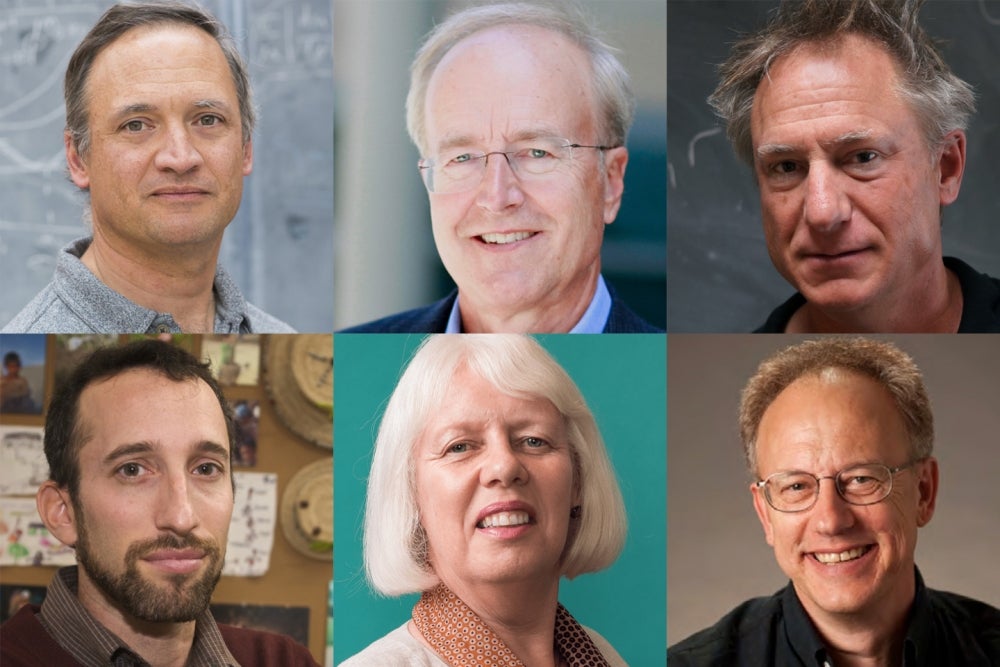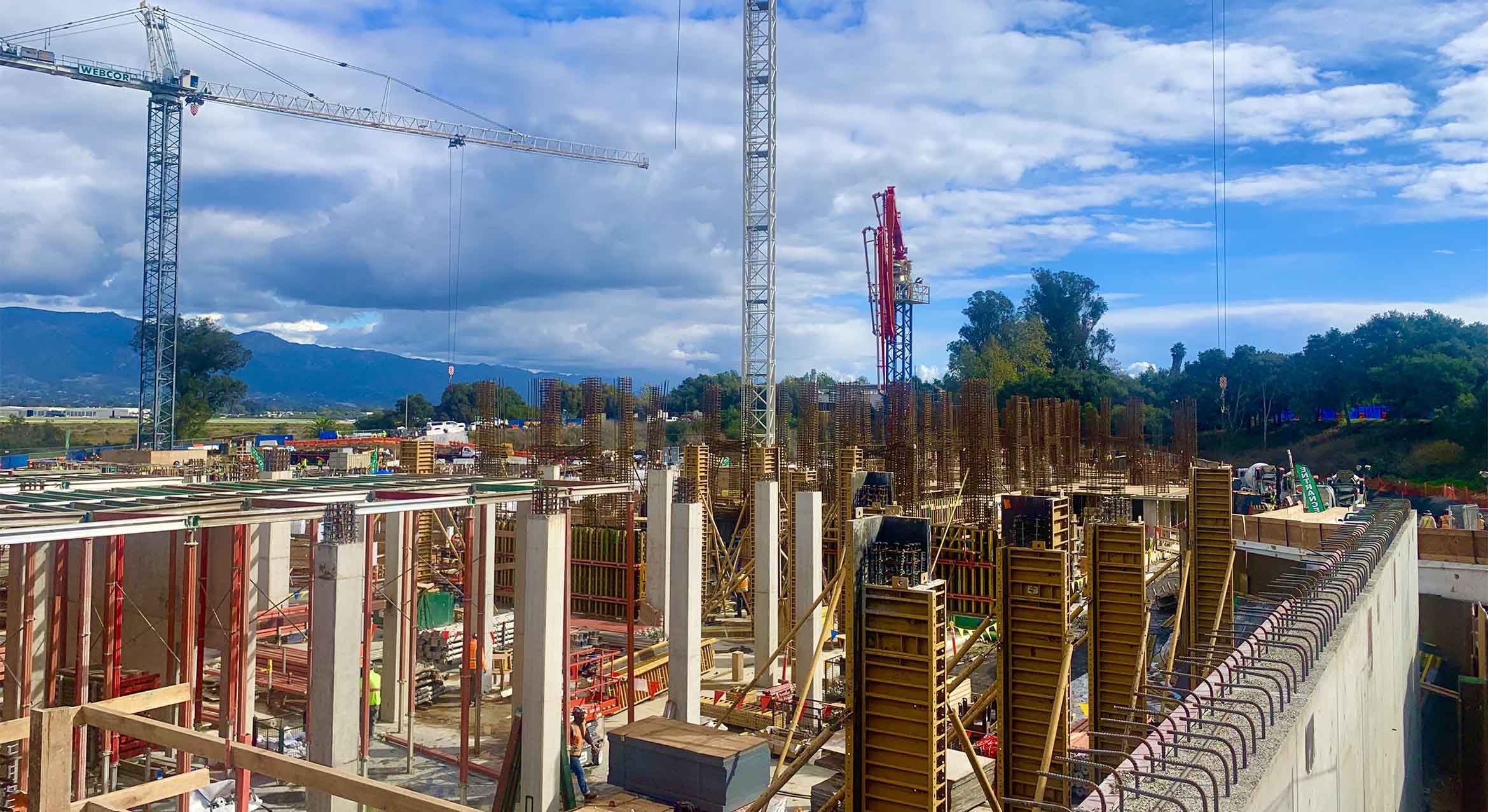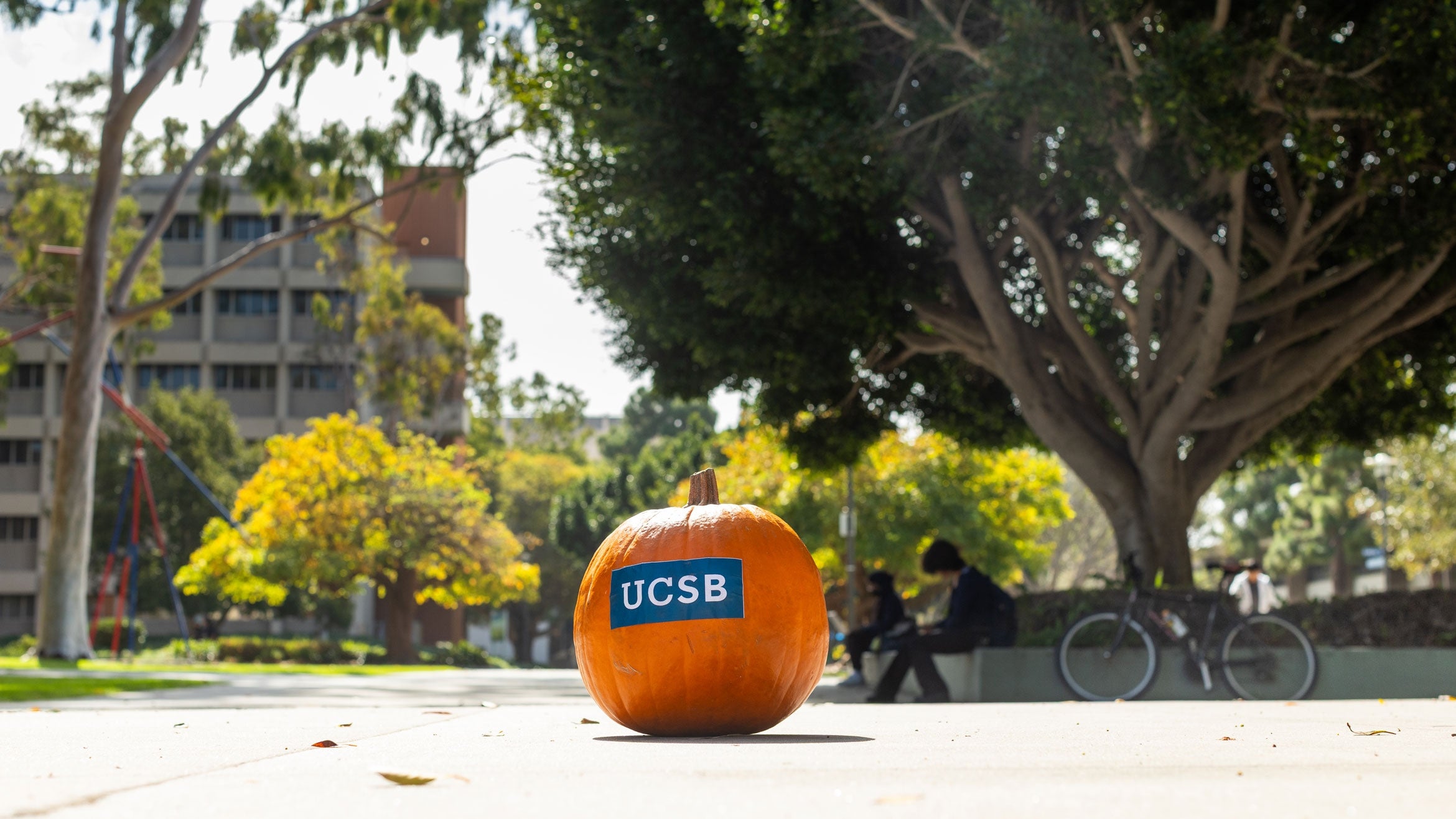
Peer-Reviewed Excellence
Six UC Santa Barbara researchers have been named fellows of the American Association for the Advancement of Science (AAAS) for 2021. Election as an AAAS Fellow is an honor bestowed upon AAAS members by their peers for their scientifically or socially distinguished efforts to advance science or its applications.
The new fellows are: Leon Balents, the Pat and Joe Yzurdiaga Chair in Theoretical Physics in the Kavli Institute of Theoretical Physics; John E. Bowers, the Fred Kavli Distinguished Professor of Materials, Electrical & Computer Engineering and Technology Management; Matthew Fisher, a professor in the Department of Physics; Michael Gurven, a professor in the Department of Anthropology; Mary Hegarty, a distinguished professor in the Department of Psychological & Brain Sciences; and Joel Rothman, a distinguished professor and Wilcox Family Chair in Biotechnology in the Department of Molecular, Cellular and Developmental Biology.
“On behalf of the Division of Mathematical, Life and Physical Sciences, I congratulate Professors Hegarty, Rothman, Balents, Bowers and Fisher on this prestigious honor,” said Pierre Wiltzius, the Susan and Bruce Worster Dean of Science and a professor of Physics. “All of them have earned accolades through their hard work and original research, and now they are part of this distinguished group of scientists and innovators. These awards recognize highly valued contributions to their respective fields, and I could not be prouder that they are members of our UC Santa Barbara faculty.”
Said Charlie Hale, the SAGE Sara Miller McCune Dean of Social Sciences, “I extend my fulsome congratulations to Professor Gurven on this singular achievement. “His research into how ecological and biocultural factors affect behavior, health and psychology in diverse populations draws on multiple theories, methods and bodies of disciplinary knowledge, yielding a truly integrative approach.”
“The College of Engineering is proud to congratulate Professor John Bowers on this distinct honor from his peers,” said Tresa Pollock, the interim dean of engineering and Alcoa Distinguished Professor of Materials. “This recognition is a testament to his pioneering research in photonics and optoelectronics that has and will continue to benefit society. His innovative work in integrated silicon photonics is leading the way to the future of telecommunications and electronics.”
Here’s a brief look at the new AAAS fellows:
Leon Balents, a professor of physics and permanent member of KITP, studies how many quantum particles interact with one another to collectively produce “emergent” phenomena.
“It’s an honor to have been selected as a AAAS Fellow,” he said, “and I’m grateful to my UCSB colleagues for their support in getting me to this point.”
John E. Bowers is one of the leading researchers in the areas of silicon photonics, optoelectronics, energy efficiency and the development of novel low-power optoelectronic devices for the next generation of optical networks. His research interests include silicon photonics and integrated circuits, fiber optic networks, thermoelectrics, high efficiency solar cells, and optical switching.
“AAAS is the premier scientific society and I am very grateful for receiving this recognition,” he said. “I appreciate the hard work and many contributions of the students and postdocs in my group, and collaboration with so many faculty at UCSB.”
Matthew Fisher has, for the past several years, served as scientific director of the new Quantum Brain Project, which explores an intriguing question: “Might we ourselves,” he has asked, “be quantum computers, rather than just clever robots who are designing and building quantum computers?”
“While it is a personal honor to be selected as a fellow of the AAAS, I would like to acknowledge all of the extremely talented graduate students and postdocs I have collaborated with here at UCSB,” he said. “The physics atmosphere at UCSB is wonderful and conducive to creative and collaborative research.”
Michael Gurven’s research links the evolved life history of humans with high levels of intragroup cooperation. He has conducted fieldwork for two decades with South American indigenous populations, and his work takes an evolutionary perspective on behavior, health, physiology and psychology. Since 2002, Gurven has co-directed the Tsimane’ Health and Life History Project to better understand how aspects of environment and lifestyle affect health and lifespan in subsistence-level societies.
“I’m deeply honored to be recognized by the top scientific organization whose mission is to both advance science and serve society,” he said.
Mary Hegarty’s research focuses on spatial thinking in complex activities such as comprehension, reasoning, problem solving and navigation. She studies the role of internal and external spatial visualizations in reasoning about such diverse topics as mechanical systems, weather patterns and molecular structure. Much of her work is concerned with the use of mental simulation/visualization in conjunction with analytic strategies in scientific problem solving.
“I am just thrilled and honored to be selected as a fellow,” she said. “The American Association for the Advancement of Science serves an increasingly important function, given current trends including misunderstanding and mistrust of science, and I am looking forward to participating more in the association in the future.”
Joel Rothman’s research focuses on the molecular genetic processes that control embryo development and adapting those mechanisms to reveal how cells and organs can be provoked to adopt new identities, of importance to birth defects and regenerative medicine. His lab also investigates the switches that dictate the life, proliferation and death of cells and how cells maintain resilience to extreme stress, processes that underlie animal behavior, longevity and tumorigenesis.
“It is a great honor to be selected as a fellow of one of the world’s most prominent scientific organizations,” he said, “but most importantly this recognition highlights the tremendous accomplishments of the many highly talented and motivated postdocs, students and staff members who have advanced the research discoveries that we have celebrated over many years in my lab.”



